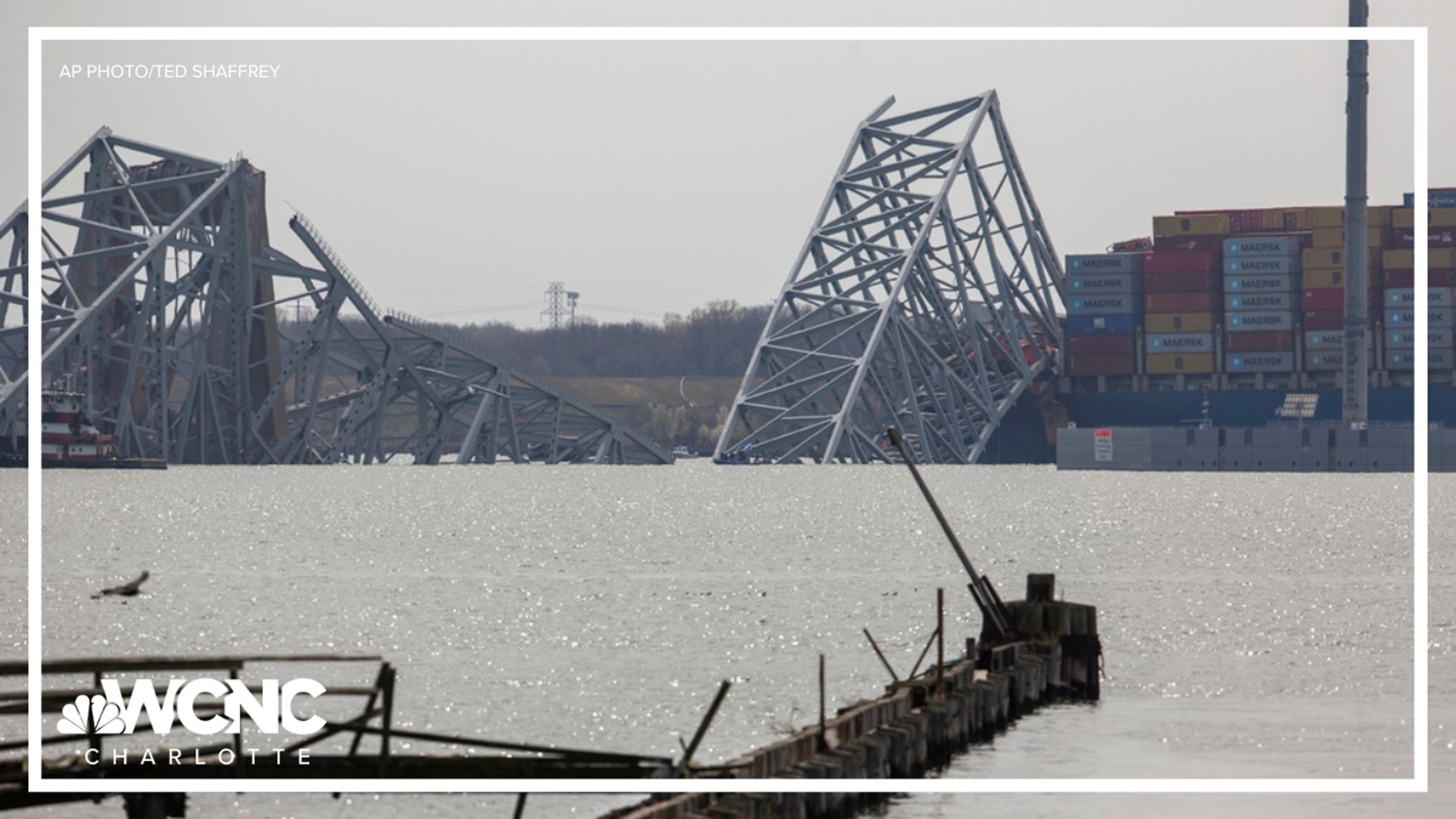CHARLOTTE, N.C. — The Carolinas are unlikely to feel major economic impacts from the Port of Baltimore's closure following the collapse of the Francis Scott Key Bridge, local experts tell WCNC Charlotte.
Debris from the bridge remains in the water of the Patapsco River after a cargo ship collided with one of its support pillars Tuesday. The collapse of the interstate roadway bridge creates both a travel headache for drivers and blocks access to one of the most important trade hubs along the East Coast of the United States.
In the wake of the collapse, U.S. transportation officials announced ships on course for Baltimore would be diverted to other ports along the East Coast.
"So they're looking to reroute them," Alan Turovlin, a business program director at UNC Charlotte, said about the ships stranded outside the port. "Everything that's on a boat right now, I'm trying to figure out where to go."
Although the Port of Baltimore is among the largest in the eastern United States, the impact is expected to be more severe in the Northeast region.
"I think [the impacts are] going to be fairly regionalized quite honestly," Kent Gourdin, a professor and director of the Global Logistics and Transportation program at the College of Charleston, explained to WCNC Charlotte. "We're not in their area - that port's area of influence."
Turovlin and Goudin, both of whom have doctorates in business administration, predict the Southeast will not see a change in pricing and supply for most goods. However, both cautioned that the automotive industry could see changes, if any changes were to be felt.
"A huge number of cars are handled through Baltimore," Gourdin said. "Both import and export."
The Port of Baltimore handled more than 847,000 cars and light trucks in 2023, the most of any U.S. port for the 13th straight year, according to data from the state of Maryland.
If prices did increase as a result of the supply chain strain, both men said it would be because companies are having to pay more money to reroute goods by ship and truck.
"Their costs are going to go up, whether it's more miles, or fees [from] unloading different places," Turovlin said. "Somewhere, you are going to have to make a decision: do you increase your price, or do you not make as much money?"


